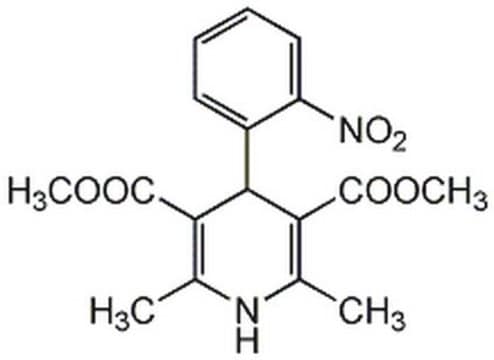P4670
Propafenone hydrochloride
Synonym(s):
1-[2-(2-Hydroxy-3-(propylamino)propoxy)phenyl]-3-phenyl-1-propanone hydrochloride
About This Item
Recommended Products
form
powder
Quality Level
originator
Abbott
storage temp.
2-8°C
SMILES string
Cl[H].CCCNCC(O)COc1ccccc1C(=O)CCc2ccccc2
InChI
1S/C21H27NO3.ClH/c1-2-14-22-15-18(23)16-25-21-11-7-6-10-19(21)20(24)13-12-17-8-4-3-5-9-17;/h3-11,18,22-23H,2,12-16H2,1H3;1H
InChI key
XWIHRGFIPXWGEF-UHFFFAOYSA-N
Gene Information
human ... ABCB1(5243) , ADRB1(153) , ADRB2(154) , ADRB3(155) , CYP1A2(1544) , SCN10A(6336) , SCN11A(11280) , SCN1A(6323) , SCN2A(6326) , SCN3A(6328) , SCN4A(6329) , SCN5A(6331) , SCN7A(6332) , SCN8A(6334) , SCN9A(6335)
Looking for similar products? Visit Product Comparison Guide
General description
Application
Biochem/physiol Actions
Features and Benefits
Signal Word
Warning
Hazard Statements
Precautionary Statements
Hazard Classifications
Acute Tox. 4 Oral
Storage Class Code
11 - Combustible Solids
WGK
WGK 3
Choose from one of the most recent versions:
Already Own This Product?
Find documentation for the products that you have recently purchased in the Document Library.
Our team of scientists has experience in all areas of research including Life Science, Material Science, Chemical Synthesis, Chromatography, Analytical and many others.
Contact Technical Service









